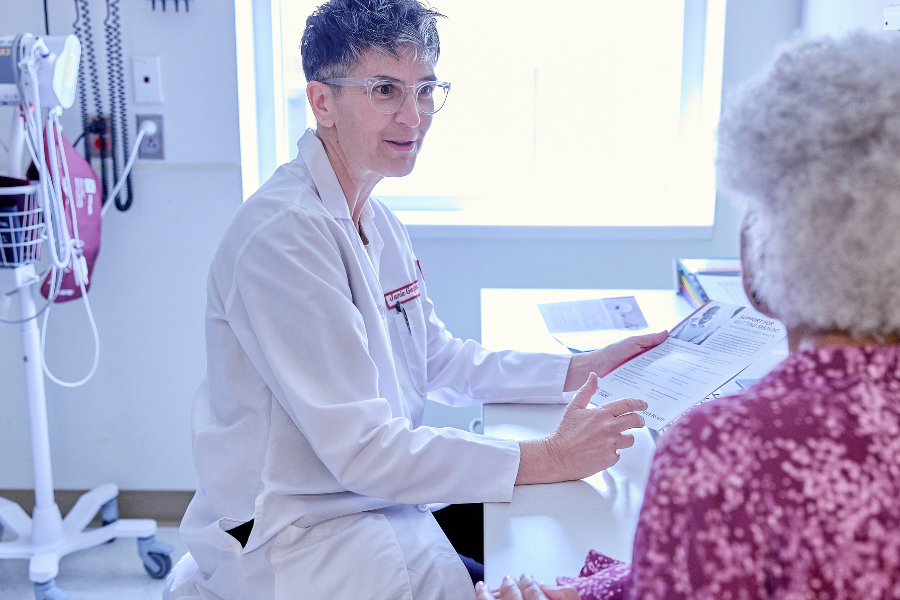You have probably heard or read about patients contracting serious infections with a “superbug” after an endoscopic procedure called ERCP. The following information is provided to explain important concepts and discuss your risks.
Getting an Infection from Endoscopic Procedures
View All Blog PostsFrequently Asked Questions
The bacteria in the news is called CRE or carbipenem resistant enterobacteriaceae. It is a bacterium that is resistant to most commonly used antibiotics and causes serious – even life threatening - infections.
ERCP is an abbreviation that stands for Endoscopic Retrograde CholangioPancreatography. It is an advanced and very technical endoscopic procedure, in which an instrument called a duodenoscope is used to diagnose and treat medical problems in the pancreas and bile ducts. ERCP is a crucially important and frequently life-saving procedure.
The duodenoscope is different from the endoscopes that are used in routine upper endoscopy and colonoscopy.
ERCP is not performed nearly as often as colonoscopy or upper endoscopy. It is estimated that 500,000 are performed in the United States each year. About 100 cases of CRE have been reported, or about 1 in every 5,000 procedures. No cases of CRE after ERCP have ever been reported at Temple University Hospital.
We don’t know for sure. However, the mechanical complexity of the ERCP scope makes it difficult to disinfect. It is possible that some bacteria were not completely removed during the scope cleaning process. However, when the guidelines for cleaning these scopes are followed, the risk of infection is extremely low.
Of course, your safety and health is our first priority. We share your concern about any issue that could cause a problem during or after your procedure.
Our Temple gastroenterologists are well aware of the potential for spreading CRE during an ERCP procedure. We have met with our hospital administrators, nurses, and technicians so that the guidelines of the endoscope manufacturers, the scope cleaning machine manufacturers, and the best infection control guidelines are followed. We are increasing the oversight of our technicians work when they are cleaning endoscopes.
In addition, the Food and Drug Administration (FDA), Centers for Disease Control and Prevention (CDC), ERCP scope manufacturers, and the national Gastroenterology associations are all reviewing the matter. They are sponsoring new research and developing new instruments to address the bacteria issue.
You should always discuss the risks and benefits of any procedures with your doctor. For most patients, the benefits of ERCP far outweigh the risks. This procedure is used to treat life-threatening problems that may not be able to be treated in any other way.
Ask your physician what to expect after the procedure, and what symptoms would indicate a need to get further medical attention. Symptoms of an infection could be fever, chills, abdominal pain, difficulty breathing, or nausea.
There have been no reported cases of CRE being transmitted during colonoscopy, upper endoscopy, or other procedures.
What Is the "Bottom Line"?
There have been some reports in the news of a “superbug” (CRE) being transmitted during ERCP procedures. This is very rare, and has not happened at Temple University Hospital. We are well aware of the problem and are taking measures to prevent this from ever happening here. You should know that the benefits of ERCP far outweigh the small risk of infection. However, if you have additional questions, please feel free to ask your Temple Gastroenterologist.
The information on this Site is for informational purposes only and is not intended as a substitute for medical professional help, advice, diagnosis or treatment. Always seek the advice of your physician or other qualified health care provider with any questions that you have regarding your medical care. For more information, see our Terms of Use.
Benjamin Krevsky, MD, MPH
Dr. Krevsky is a gastroenterologist with clinical interests in colonoscopy, GERD, constipation and capsule endoscopy. A Professor of Medicine at the Lewis Katz School of Medicine at Temple University, Dr. Krevsky is an active clinician and educator, having published over 200 papers, audiotapes and books. He is also a member of several organizations, including American College of Gastroenterology, American Society of Gastrointestinal Endoscopy, and American Gastroenterological Association.

